In the carefully orchestrated world of celebrity interviews, where questions are often vetted and answers rehearsed, Zane Lowe has carved out a remarkable alternative approach—one that prioritizes human connection over headlines. This evolution in his interviewing style wasn’t immediate; rather, it emerged from a pivotal conversation with Justin Bieber that changed everything.
“I thought I was going to get a great conversation focused on an album that served the purpose that the label and the management and the artist wanted it to serve,” Lowe reflects. Instead, he found himself in uncharted territory when Bieber showed no interest in the traditional promotional dance. This unexpected deviation from script became the catalyst for Lowe’s transformation as an interviewer.
The moment marked a profound shift in his approach to conversations with artists. Where once he arrived armed with meticulously crafted questions and predetermined narratives, Lowe began embracing the art of presence. This new methodology isn’t about abandoning preparation—it’s about transcending it. “I used to have a method,” he admits, “I just don’t know what to do with it anymore.”
This liberation from conventional interview techniques has yielded extraordinary results. When sitting down with legends like Neil Young or emerging artists like Billie Eilish, Lowe approaches each conversation with the same open mindset. He’s discovered that by removing the pressure to “sell” anything—be it an album, a narrative, or an image—he creates space for something far more valuable: authenticity.
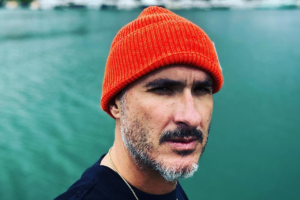
The beauty of this approach lies in its universality. Whether speaking with Little Yachty or Neil Young, Lowe enters each conversation seeking “the most interesting and human experience,” stripped of hierarchy or preconception. This democratization of dialogue has become his signature, earning him the trust of artists and the attention of audiences who crave genuine connection in an increasingly manufactured media landscape.
Perhaps most remarkably, this method has revealed an unexpected truth: when you stop trying to extract specific soundbites or steer toward predetermined conclusions, every conversation has the potential to surprise. “Everyone is surprising and everyone catches me off guard with their observations,” Lowe notes, “because I’m not going in with any prior observations or any kind of premeditated framework.”
This approach mirrors a broader truth about human connection in our digital age: authentic conversation has become a rare commodity, making it more valuable than ever. In a world where interviews often feel like carefully choreographed performances, Lowe’s method serves as a reminder that the most compelling conversations often emerge when we dare to let go of our scripts and truly listen.
In the dimly lit venues of 1980s New Zealand, a young Zane Lowe experienced what many would call a spiritual awakening. Standing in the crowd at a Split Ends concert, accompanied by his mother, he found himself transported to a place beyond the physical confines of the venue. It wasn’t merely the act of watching a performance—it was, as his mother would later describe, “almost like an out-of-body experience, like being in church.”
This transformative moment marked the beginning of a love affair with music that would shape the trajectory of his life. Yet it was his encounter with the Talking Heads’ concert film “Stop Making Sense” that crystallized his ambition. After convincing his mother to take him to see the film two days in a row, young Lowe found himself grappling with a new question: how does one bridge the gap between fan and participant? As he puts it, “Talking Heads was somewhere like they may as well be on Mars.”
The journey from passionate observer to industry insider wasn’t linear. Unlike many in the music industry who approach their work with calculated precision, Lowe’s path was guided by an almost obsessive immersion in what he loved. “Once I kind of made it a singularity rather than one of many hobbies,” he reflects, “I just tried to immerse myself in as much of it as possible.” This singular focus would eventually lead him from local radio to the global stage of Apple Music’s creative direction.
What sets Lowe apart in his current role is his ability to maintain the pure enthusiasm of that young concert-goer while wielding significant influence in the industry. In an era where cynicism often comes with experience, he has managed to preserve what he calls “the distance between who I was in that concert and who I am today”—a distance he describes as “very short.” This authenticity manifests in his work, whether he’s conducting interviews or curating music for millions of listeners.
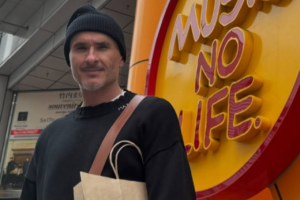
The preservation of his fan perspective hasn’t come without effort. In an industry that often demands conformity to certain roles and expectations, Lowe has deliberately chosen to maintain his connection to that initial spark of passion. “I still get the same sense of… I can still find myself in that space where I’m lost,” he says, describing how music continues to move him to tears during solitary walks with his headphones.
This evolution—from wide-eyed fan to influential industry figure—offers a masterclass in maintaining authenticity while ascending to positions of influence. It suggests that true success in the music industry, or perhaps in any field, doesn’t require abandoning one’s original passion. Instead, it might be about finding ways to amplify that passion, to share it with others while keeping its essence intact.
In Lowe’s case, his journey from the crowd at Split Ends to the helm of Apple Music’s creative direction isn’t just a story of career advancement—it’s a testament to the power of preserving one’s fundamental connection to what they love, even as their relationship to it evolves and grows more complex.
In an era of carefully curated media moments and viral soundbites, Zane Lowe has cultivated something increasingly rare: the art of genuine conversation. This evolution in his approach to interviews wasn’t born from strategy meetings or focus groups, but rather from a single, transformative encounter with Justin Bieber that challenged everything he thought he knew about the craft of conversation.
“I thought I was going to get a great conversation focused on an album that served the purpose that the label and the management and the artist wanted it to serve,” Lowe recalls of that pivotal interview. What transpired instead was something far more authentic—a moment where the prescribed narrative fell away, revealing the power of genuine human connection. This unexpected deviation became the catalyst for a complete reimagining of his approach to dialogue.
The transformation was profound. Where once Lowe arrived at interviews armed with meticulously crafted questions and predetermined paths, he began embracing the art of presence. This shift wasn’t about abandoning preparation entirely, but rather about transcending it. “I used to have a method,” he reflects, with the kind of candor that has become his trademark, “I just don’t know what to do with it anymore.”
This liberation from conventional interview techniques has yielded extraordinary results. Whether sitting down with industry veterans like Neil Young or emerging artists like Billie Eilish, Lowe approaches each conversation with the same open mindset. By removing the pressure to “sell” anything—be it an album, a narrative, or an image—he creates space for something far more valuable: authenticity.
The beauty of this approach lies in its universality. “Whether it’s Little Yachty or Neil Young,” Lowe explains, he enters each conversation seeking “the most interesting and human experience,” stripped of hierarchy or preconception. This democratization of dialogue has become his signature, earning him the trust of artists and the attention of audiences who crave genuine connection in an increasingly manufactured media landscape.
Perhaps most remarkably, this method has revealed an unexpected truth: when you stop trying to extract specific soundbites or steer toward predetermined conclusions, every conversation has the potential to surprise. “Everyone is surprising and everyone catches me off guard with their observations,” Lowe notes, “because I’m not going in with any prior observations or any kind of premeditated framework.”
In practice, this means allowing conversations to unfold naturally, following their own organic rhythm rather than forcing them into predetermined paths. It’s an approach that requires confidence, patience, and above all, genuine curiosity about the person sitting across from you. The result is often magical—moments of unexpected vulnerability, insight, and connection that no amount of careful planning could have engineered.
For those seeking to master the art of meaningful conversation, whether in professional interviews or personal interactions, Lowe’s evolution offers valuable lessons. It suggests that true connection often lies not in what we plan to say, but in our willingness to truly listen, to be present, and to let go of our preconceptions about how a conversation should unfold.
In the high-stakes world of music and media, where success often demands relentless drive, Zane Lowe’s journey offers a compelling narrative about the delicate balance between professional ambition and personal well-being. His story reveals the often-unseen struggles beneath the surface of success, including a candid acknowledgment of his ongoing battle with OCD and the transformative power of addressing mental health.
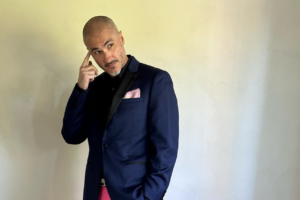
For years, Lowe lived with persistent physical pain—a constellation of aches spanning his arm, fingers, neck, lower back, and hip. “I really genuinely thought I’m just going to live with these aches, this will be it for the rest of my life,” he recalls. Like many high achievers, he had fallen into the trap of using work as both shield and distraction: “The harder you work, the more you achieve, the more you achieve, the more you tell yourself you’re okay, the more you tell yourself you’re okay, you’re not dealing with the one.”
The turning point came with parenthood. Facing the profound responsibility of fatherhood, Lowe realized he was “ill-prepared to share my best.” This recognition led him to therapy, a decision that would reshape not just his approach to mental health, but his entire way of being. Through therapeutic work, he discovered that much of his physical pain was connected to unprocessed emotional experiences—a revelation that speaks to the deep interconnection between mental and physical well-being.
The journey through therapy revealed another crucial insight: the body’s capacity to store emotional burden. “My body was trying to protect me,” he explains, describing how stress and overwork had manifested physically when he “didn’t have anywhere else to put it.” This understanding led to a profound shift in his approach to both work and self-care.
Perhaps most striking is Lowe’s evolving relationship with compulsive behaviors. With disarming honesty, he shares his ongoing effort to “unlearn” the need to wash his hands after touching surfaces or checking taps repeatedly. “It’s been my life for so long that I think the most frustrating thing is I’m just used to it,” he reflects. This acknowledgment of the persistent nature of mental health challenges, even amid professional success, offers a powerful reminder that wellness is an ongoing journey rather than a destination.
The balance he’s found isn’t about achieving perfection but about maintaining awareness and making conscious choices. His approach to work has evolved from constant acceleration to strategic modulation—knowing when to push forward and when to pull back, much like a Formula 1 racer navigating a complex track. “Speed’s a massive part of it,” he notes, “but only when you need to go fast.”
This evolution in his approach to well-being has, paradoxically, enhanced rather than hindered his professional impact. By creating space for personal growth and healing, he’s found himself better equipped to connect with artists, manage relationships, and maintain the authentic enthusiasm that first drew him to music.
For those navigating their own balance between ambition and well-being, Lowe’s journey offers a compelling reminder: true success isn’t measured by achievement alone, but by our ability to maintain our humanity—and our health—along the way.
In the bustling streets of London, amid the countless stories of serendipitous encounters, Zane Lowe’s reunion with a familiar face from his New Zealand past would prove to be more than just another expatriate connection. Their love story began at a pub on Regent Street—a simple meetup for a beer that would evolve into a 24-year marriage marked by growth, understanding, and profound transformation.
The beauty of their union lies in its organic evolution. “We got married quickly,” Lowe recalls, describing a registry office ceremony with just two witnesses. It wasn’t the grand celebration that often marks such occasions, but rather a pragmatic decision driven by visa issues and an intuitive understanding that they were meant to share their journey. “Both of us felt like it was forever,” he reflects, “but I think it’s kind of too simplistic to say that we were dead sure… we were just trying to keep it going.”
This absence of societal pressure and external expectations created space for something more authentic to flourish. Without the weight of “150 pairs of eyes” watching their union, they were free to focus on what mattered most: “Let’s just get to work.” This philosophy—treating marriage as a collaborative journey rather than a performative milestone—has defined their relationship’s evolution.
Through the years, their partnership has become a catalyst for personal growth. Lowe credits his wife with exposing “flaws that I would have hidden for so long from the world.” Yet this revelation comes not through criticism or judgment, but through what he describes as an “effortless” process—someone who “reveals to you parts of yourself that you know they’re the only one that sees.”
The impact of this partnership extends beyond their personal dynamic to shape Lowe’s professional trajectory and mental health journey. His wife’s advice to “pull the car over” when feeling directionless has become a metaphor for mindful pause in a fast-paced industry. This simple yet profound guidance—to stop, let the traffic pass, and recalibrate—exemplifies how their relationship has fostered both personal and professional wisdom.
Their connection thrives on mutual growth and genuine appreciation for each other’s evolution. “We make each other laugh… a lot,” Lowe shares, highlighting how humor and lightness balance the deeper aspects of their bond. This ability to find joy in simple moments while supporting each other through life’s complexities has created a resilient foundation for their relationship.
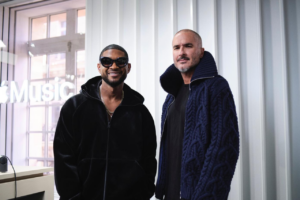
Perhaps most telling is Lowe’s humble acknowledgment: “I definitely married up.” This recognition speaks to a partnership where admiration and respect continue to deepen with time, where individual growth is celebrated rather than feared, and where the journey together remains more important than any destination.
Their story offers a compelling reminder that true partnership isn’t about perfect alignment or avoiding challenges, but about creating space for authentic growth and connection. In a world often fixated on curated representations of relationships, their journey stands as a testament to the power of genuine partnership—one built on daily choice, mutual support, and the courage to grow together through life’s various seasons.
In the relentless pursuit of success, we often overlook the subtle art of authentic living—a balance that Zane Lowe has come to master through years of intentional practice and thoughtful observation. His insights offer a masterclass in navigating the delicate intersection of ambition and authenticity, revealing how small, deliberate choices can transform our daily experience.
Consider his morning ritual, discovered through an unlikely source: Rick Rubin’s practice of early morning sun exposure. What began as an awkward experiment—standing in his yard at 6:30 AM in boxer shorts, feeling “like a weirdo”—evolved into a transformative habit that revolutionized his sleep patterns. This simple act of greeting the day mirrors ancient wisdom traditions, where practices like the sun salutation (Surya Namaskar) weren’t merely spiritual exercises but fundamental tools for aligning with natural rhythms.
The value of creating space for gratitude emerges as another crucial element in Lowe’s philosophy. “To be truly grateful,” he observes, “you need to allow yourself space to be grateful.” This isn’t about hastily checking off a gratitude list at day’s end, but rather about cultivating moments of genuine appreciation. It’s a deliberate pause in the chaos, much like his wife’s advice to “pull the car over”—a metaphor for stepping away from life’s traffic to recalibrate and find direction.
Perhaps most intriguingly, Lowe’s relationship with ego offers a nuanced perspective on ambition. Rather than viewing ego as something to be eliminated, he acknowledges its role in creative pursuits while remaining vigilant about its potential to distort authentic expression. This balanced approach suggests that success doesn’t require the abolition of ego, but rather a conscious engagement with it—understanding when it serves as a powerful ally and when it becomes a hindrance.
The discipline required to maintain this equilibrium isn’t about rigid control but about conscious choice. As Lowe notes, “Working hard doesn’t mean you’re actually getting the most out of it.” This insight challenges the prevalent narrative of hustle culture, suggesting that effectiveness often lies in the spaces between effort—in the moments of reflection, rest, and genuine connection.
His approach to social anxiety reveals another layer of authentic living. Rather than forcing himself into uncomfortable situations or avoiding them entirely, he’s learned to be “kind to myself” and make pressure-free decisions. This compassionate self-awareness often leads to natural engagement, demonstrating how gentleness can be more effective than force in overcoming personal challenges.
These lessons in authentic living aren’t about dramatic transformations but about small, consistent choices that align with our true nature. Whether it’s standing in morning sunlight, taking mindful pauses, or approaching challenges with self-compassion, each practice builds upon the others to create a more integrated way of being.
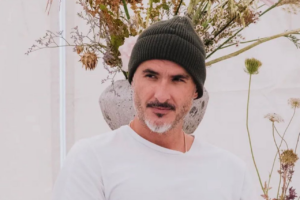
In an era where authenticity is often preached but rarely practiced, Lowe’s experience offers a roadmap for genuine living—one that acknowledges the complexities of modern life while honoring our fundamental need for connection, rest, and purpose. It’s a reminder that the path to authenticity isn’t found in grand gestures but in the quiet moments of aligned action and conscious choice.
In the carefully curated landscape of modern media, where success often demands conformity, Zane Lowe’s trajectory offers a refreshing counternarrative. His evolution from an enraptured young fan in New Zealand to Apple Music’s creative director demonstrates how maintaining authenticity can become not just a personal principle, but a professional advantage.
At the heart of Lowe’s story lies a profound truth: the most impactful career paths often spring from genuine passion rather than calculated strategy. His description of being “just a fan” isn’t false modesty—it’s the foundational truth that has guided his entire journey. This self-identification has remained constant even as his influence has grown, providing an anchor point that keeps him connected to the pure enthusiasm that first drew him to music.
The preservation of this authentic connection hasn’t been accidental. In an industry that often demands compromises, Lowe has made conscious choices to maintain his emotional connection to music. Whether it’s still finding himself moved to tears during solitary walks with his headphones, or approaching each artist interview with genuine curiosity rather than a predetermined agenda, he continues to prioritize authentic engagement over industry conventions.
This commitment to authenticity has manifested in unexpected ways throughout his career. His approach to interviewing evolved not through industry workshops or media training, but through the realization that genuine conversation yields better results than careful orchestration. His handling of social anxiety—being honest about his struggles while finding ways to navigate industry events—demonstrates how authenticity can coexist with professional demands.
Perhaps most notably, Lowe’s journey illustrates how personal growth and professional success can be mutually reinforcing rather than competing priorities. His decision to pursue therapy wasn’t just about personal healing—it was about being better equipped to serve both his family and his craft. This holistic approach to growth has allowed him to expand his influence while deepening his connection to what matters most.
The lessons from Lowe’s evolution extend beyond the music industry. They speak to anyone navigating the challenge of maintaining authenticity while building a career of significance. His experience suggests that success doesn’t require abandoning our genuine passions or pretending to be someone we’re not. Instead, it’s about finding ways to amplify our authentic selves while remaining open to growth and evolution.
In an era where “authenticity” is often co-opted as a marketing strategy, Lowe’s journey offers a blueprint for the real thing—a path that honors both where we’ve come from and who we’re becoming. It’s a reminder that our greatest professional asset might just be our unwavering commitment to remaining true to what moved us in the first place.


